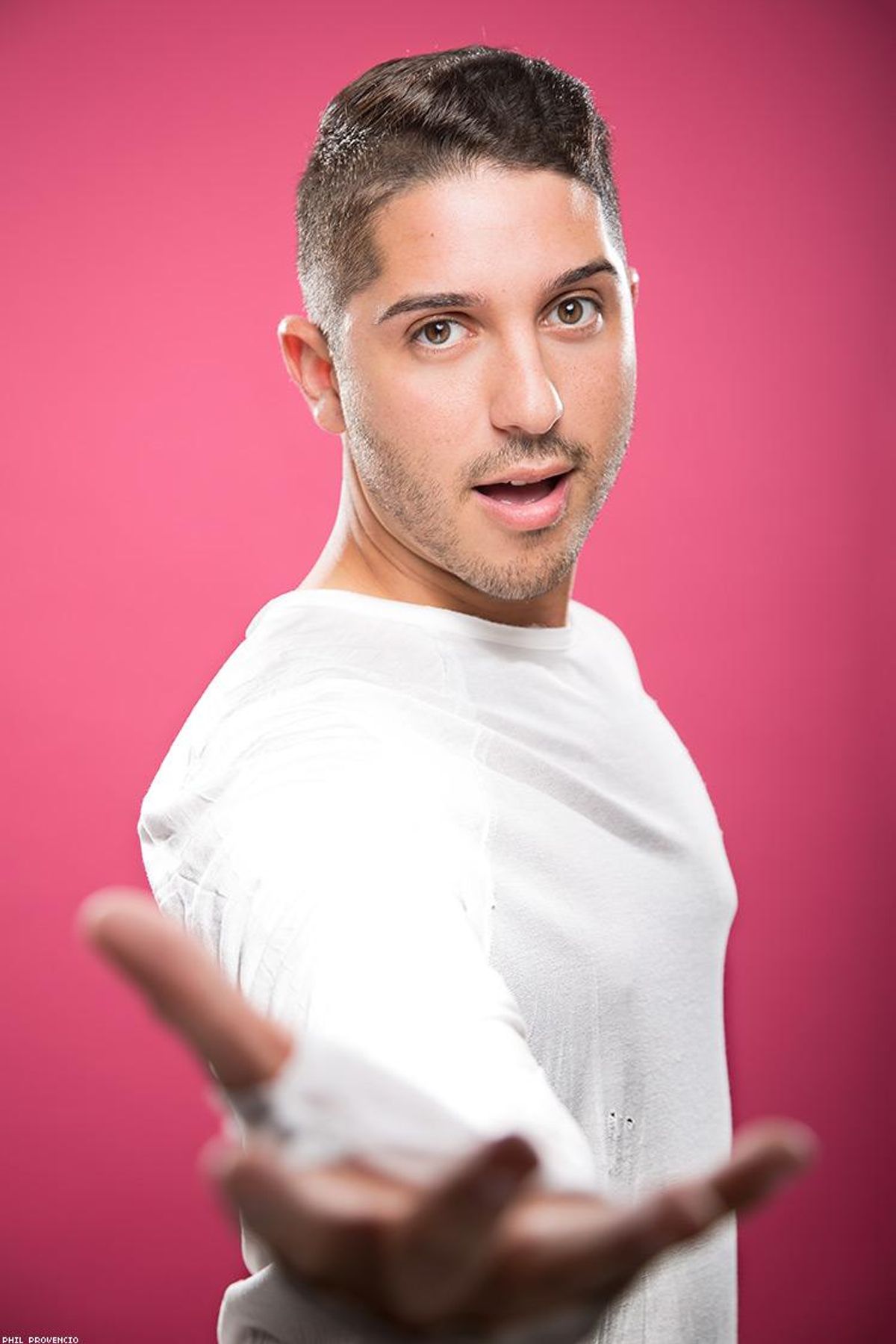People
Nicky Paris: Carving Out a Place for Gay Comics

The young, out, and edgy comedian talks about what his art means to him.
Kelsey Minor
August 30 2017 3:13 PM EST
August 30 2017 5:00 PM EST
By continuing to use our site, you agree to our Private Policy and Terms of Use.

The young, out, and edgy comedian talks about what his art means to him.
Twenty-four-year-old Nicky Paris remembers the day he told his first joke before a crowd. "I was on a cruise ship -- I was 17 and super ambitious," Paris says.
The Staten Island, N.Y., native comes from humble beginnings and struggled with self-esteem. "I never really felt like I fit in until I realized I was funny," says Paris.
A natural onstage, Paris is quick-witted and engages crowds with ease. His brand of comedy has been shaped by some of the greatest, including Eddie Murphy and the late Richard Pryor and Joan Rivers.
Paris is continuing to pay his dues in an industry very few people who identify as LGBT. Besides wanting to make people laugh, his mission is to continue breaking barriers -- a process that started with Ellen DeGeneres -- and carve out a place for out and proud comedians to thrive.
The young comic spoke with The Advocate's contributing reporter Kelsey Minor about wanting to succeed, playing for gay crowds versus straight ones, and much more.
The Advocate: I can't say at 17 years old that I would have gotten in front of a room full of strangers, no less on a cruise ship, to tell jokes. How did you end up doing that?
Nicky Paris: You know, Kelsey, I had nothing prepared, and everyone was like, "Just go up there," and basically ripped on people in the crowd and said whatever was on my mind. I remember people laughing and applauding, and I thought to myself maybe I really have something here. I left the cruise ship with such energy and I immediately started doing open-mike nights in New York City.
That in itself is an amazing accomplishment, but I'm wondering if that was easy for you to do.
It was not easy at all. When I first started comedy I went onstage with what I like to call my very fabulous self. My image has changed over the years because I had people tell me that stand-up comedy is like a blue-collar job, where you're knocking on doors that won't let you in. I never really understood that because I'm one of those people where funny is funny. I don't like to be pigeonholed because I'm gay -- I'm a comedian because I'm funny, not because I'm gay.
You're a young guy. and I'm wondering how the crowd must perceive you once you hit the stage.
I will tell you, performing for gay crowds, they aren't my crowd. My crowd is straight. I've had so much trouble with the gay community in comedy that it's been hard for me to understand, because I thought of everyone my community would embrace me. I wasn't embraced by gay comedians who came before me, because they looked at me as competition. So I want to make sure that I'm available for any other gay comedian that's looking to break into the industry.
Paris has become a regular on the comedy club circuit. He appears weekly at the Broadway Comedy Club in New York City and graces the stage at other happening comedy spots around the city.
How would you describe your brand of comedy, and is there any topic that you will not touch as a comedian?
I would say edgy, funny, and I will make you think. I try to stay away from politics because I think there is so much going on, and if you come to a comedy show, I think it's my job to give you an escape. Typically the comedians before me will have already talked about Donald Trump, and I don't want to waste people's time talking about him any further. I do, however, believe that if something is funny and I believe in it, I will take the risk and say it.
The sky is truly the limit for you, so where do you see yourself in five years?
In five years, I hope that I'm happy and successful, and I want to get really smart in terms of the business. I would also love to do a talk show and do more stuff on television. Truly, I want to make people happy, and I hope that in the next five years I can just help; if I can make just one person laugh and forget what they are going through, then that would mean the world to me.
Before I let you go, I have heard you say comedy saved your life. I think we all want to hear more about that.
Growing up I never really felt good about myself, and comedy is an outlet to help you pour out pain. It's very hard to say, but that's where I draw my strength to get onstage from, the pain that I felt. In my eyes comedy comes from misery in some ways, and that's why I say comedy saved my life.
Saturday, Paris will take his act to the Atlantic City Comedy Club in New Jersey, where he will open for Jim Florentine.
Kelsey Minor is a two-time Emmy Award-winning journalist and freelance reporter with The Advocate. You can follow him on Twitter @theKELSEYminor
Fans thirsting over Chris Colfer's sexy new muscles for Coachella